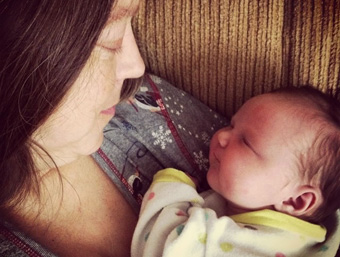Anesthesia: Risks and Reality

In pictures depicting surgery long ago, a patient undergoing a risky surgical procedure might get a shot of whiskey or a rag to bite down on. Anesthesia has come a long way since then. We now have a wide array of medications to help give safe anesthesia with less unwanted side effects during surgical procedures. The purpose of anesthesia here at Chapel Hill Surgical Center (CHSC) is to keep you safe and comfortable during your surgery.
Safety During Anesthesia
In modern medical practice and particularly within the surgical environment, the top priority is to assure patient safety with optimum outcome. The demand of the public for the best medical outcome is increased, encouraged by news of medical mistakes from entertainment new media for an anxious public. According to the Institute of Medicine, anesthesia practice is among the most successful specialties in assuring patient safety. Among medical practitioners, anesthesiologists tend to be the most conscious regarding risk and interested in addressing patient safety issues. The anesthesia specialty has a highly organized training period, a specific patient risk assessment scale, high patient monitoring standards and an Anesthesia Patient Safety Foundation (APSF). Currently, in spite of the tremendous increase in the complexity of patients and procedures, anesthesia is safely administered to severely ill patients, including those who are morbidly obese, extremely aged or just a few hours old.
Your Anesthetic for Tubal Reversal Surgery
General anesthesia is used for most abdominal surgical procedures, and that is what we use here at CHSC. It keeps you still and asleep during the procedure so you won’t feel any pain and provides the surgeon with easier operating conditions. It also affects your whole body, including your brain and reflexes. General anesthesia is begun by giving medication through an IV line. After this is given, you will not be conscious of being in the operating room. We will then insert a breathing airway into the upper airway to help keep you breathing properly. You will then breath anesthesia gas (vapor) to keep your brain asleep during the surgery. An anesthesia specialist (an MD anesthesiologist, sometimes with a nurse anesthetist) will carefully monitor your condition and control the flow of the medicines to keep you asleep. While you are asleep we will use a brain wave monitor to help us ensure that you are well anesthetized, while avoiding the use of too much medication at the same time. At the end of surgery we will remove the breathing airway, and you should start to be aware of your environment within 10-20 minutes.
Is Anesthesia Risky?
Because of its broad effect on your body, general anesthesia has a slightly higher risk of adverse effects than simple sedation and is more likely to cause side effects. However, new drugs and monitoring devices have made being anesthetized less risky for these side effects than ever. It can cause undesirable effects, but most of them are minor and temporary. Some of the most common unwanted effects are nausea, mild throat irritation, or bruising at the IV site. We do give prophylactic medication to help minimize nausea risk, but a few patients may still experience mild nausea. This depends primarily upon your previous history of nausea with anesthesia or motion sickness.
More serious complications are possible, but very rare. These include an allergic reaction to the medicine, IV infection and heart or lung problems. Your risk will depend on a number of factors, but the patients we screen for tubal ligation reversal procedures tend to be fairly healthy and are at low risk for these more significant risks. One of our two anesthesiologists, Dr. Harwood or Dr. Hertz, will discuss this with you and help you understand your personal risks.
Could I Wake Up During Surgery?
Some people worry that they will wake up while under general anesthesia. This problem is called anesthesia awareness. It is real, but it’s very rare and generally not traumatic.
We have not had a patient describe being awake during surgery here at CHSC.
In broad populations, experts estimate the risk is only about 0.006 percent, or about one in 14,000. Most cases occur during emergency or heart surgery.
Those who have anesthesia awareness usually only have a few vague memories. Very few feel pain, although this can happen.
How Can I Reduce My Risk?
Many factors can affect your response to anesthesia. To plan your care, we will need to know about:
Any health problems you have
All the medicines you take, including any herbals, supplements and over-the-counter drugs
Any food or drug allergies you have
Any past reactions to anesthesia or complications during surgery
Whether you smoke, drink alcohol, or use illegal drugs
Your safety depends on your answers. Be honest and thorough with us.
It’s important to follow any instructions we give you to prepare for anesthesia. For example, you should not eat anything after 10 p.m. the night before surgery. You can, however, drink ‘clear’ fluids (water, apple juice) until 2 hours before your arrival on the day of your tubal reversal procedure. Let us know if you become sick during the days or weeks while waiting for your scheduled surgery. Depending on the severity of illness, your surgery may have to be put off until you feel better.
Conclusion
 Anesthesia for tubal reversal patients is extremely safe at Chapel Hill Surgical Center. Our anesthesiologists are highly experienced in both academic and private practice settings and have a very long record of caring for patients and minimizing their risks during surgery. We know you have high expectations for your care here, and we hold ourselves to those same expectations while we provide this care.
Anesthesia for tubal reversal patients is extremely safe at Chapel Hill Surgical Center. Our anesthesiologists are highly experienced in both academic and private practice settings and have a very long record of caring for patients and minimizing their risks during surgery. We know you have high expectations for your care here, and we hold ourselves to those same expectations while we provide this care.
Submitted by Timothy Harwood, MD.
Board Certified Anesthesiologist









